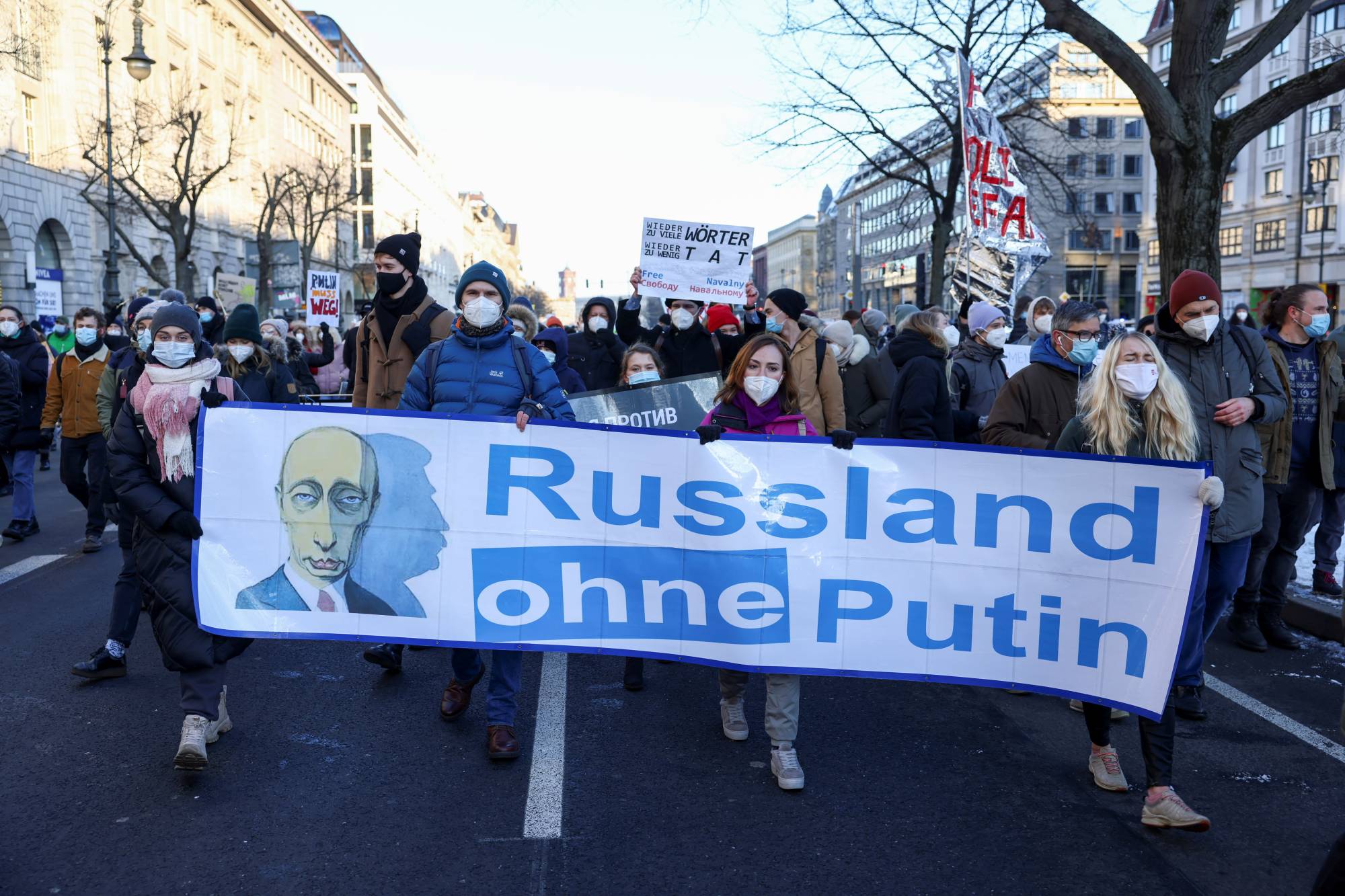Since Russians began protesting opposition leader Alexei Navalny’s imprisonment, the security forces have apparently had carte blanche to arrest demonstrators — and they have done so by the thousands. If Russians so much as honk their car horns in solidarity with the protesters, they risk personal repercussions. The official response to the protests goes beyond the Kremlin’s past repression. It is war.
Navalny has long been a prominent opponent of Russian President Vladimir Putin. But his arrest — immediately upon returning to Moscow from Germany, where he had spent months recovering from a (presumably) Kremlin-ordered poisoning — has turned him (as well as his comrades-in-arms, many of whom have also been arrested) into something of a moral authority as well.
Now that he has been sentenced to nearly three years in prison — which may be extended, if the authorities charge him with more crimes — Navalny’s moral standing is on par with late-Soviet dissidents like Andrei Sakharov. Russians who a few weeks ago never imagined that they would risk arrest over some moral imperative are now taking to the streets. And many of those who are staying home are sympathetically following news of the protests and Navalny’s plight.


















With your current subscription plan you can comment on stories. However, before writing your first comment, please create a display name in the Profile section of your subscriber account page.